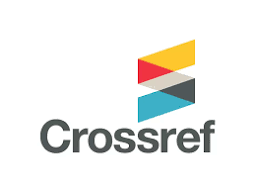Diagnostic Accuracy of Touch Cytology of Central Nervous System Lesions
Keywords:
Brain tumors, CNS tumors, Spinal cord tumors, Space occupying lesion (SOL), Touch cytologyAbstract
Introduction: Quick intraoperative diagnosis is especially important in CNS tumors where second surgery may be avoided thus saving patients from many complications. Touch imprint cytology is simple, quick and cost-effective method for the rapid diagnosisand is quite applicable to central nervous system tumors. Other methods for per operative consultation of lesions include squash smear cytology and Frozen section. The drawback of squash smear technique is that the entire tissue is squashed into the slide and no representative tissue is left for routine histopathology. Exerting too much pressure on cells badly affect their morphology. Frozen section requires special and expensive equipment. The rapid freezing causes several artifacts Touch cytology is equally effective without their associated complications.
Objective: To correlate per operative Touch imprint cytology on brain tumors with conventional histopathology.
Methodology:This was Experimental diagnostic accuracy study with cross sectional time perspective Conducted in Department of Pathology, Northwest General Hospital and Research Center Peshawar. Fresh brain and spinal cord tumors including 2 non neoplastic specimens were obtained. Before putting them in the formalin for routine surgical pathology examination, touch imprint cytology smear was prepared by gently touching the freshly removed lesion on glass slide at several places. Half of the slides were air dried and half of them were fixed in 100% alcohol. Air dried slides were stained with Diff Quick stain and alcohol fixed slides were stained with hematoxylin and eosin. These slides were immediately stained under microscope and diagnosis was given.
Results: All the smears were quite cellular; the nuclear details were excellent. The samples were of divergent nature. Breakdown of the 28 samples was as follows: meningioma (8), astrocytoma (3), primitive neuro-ductal tumors (2), pituitary adenoma (2), Schwannoma (2), arachnoid cyst (1), colloid cyst (1), dermoid cyst (1), medulloblastoma (1), glioblastoma multiforme (1), metastatic clear cell carcinoma (1), teratoma (1), benign vascular lesion (1),Leukemia/ Lymphoma (1), and Inflammatory lesion, spine(1). The finding of all these cases on touch cytology smear were same except in one case where Schwannoma, a benign peripheral nerve sheath tumor was diagnosed as other related benign peripheral nerve sheath tumor i.e. neurofibroma. There was 100 percent accuracy in terms of benign versus malignant and 96 percent accuracy in terms of precise diagnosis.
Conclusion: The touch cytology smear cells were “fresh from oven” abundant and were free from artifacts. Their morphological details were absolutely preserved. Touch cytology is simple useful technique to get almost immediate diagnosis on CNS neoplastic and non-neoplastictumors; which may be used alone or complimentary to frozen section where quick diagnosis is needed.
Downloads
Published
Issue
Section
License
Copyright (c) 2020 Tania Khattak; Khalid Javaid, Anwar Ul Haque, Farooq Azam, Tariq Khan

This work is licensed under a Creative Commons Attribution-NonCommercial 4.0 International License.
Readers may “Share-copy and redistribute the material in any medium or format” and “Adapt-remix, transform, and build upon the material”. The readers must give appropriate credit to the source of the material and indicate if changes were made to the material. Readers may not use the material for commercial purpose. The readers may not apply legal terms or technological measures that legally restrict others from doing anything the license permits.


